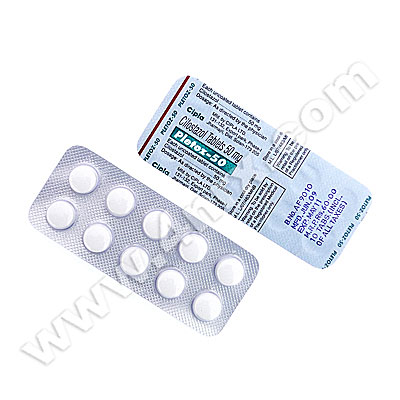 |
Home  General Health General Health  Pletoz (Cilostazol) Pletoz (Cilostazol) |
|
|||||||||
|
|
Pletoz (Cilostazol)
What is Pletoz (Cilostazol) used for? Pletoz (Cilostazol) is an oral medication used to improve blood circulation in patients with poor blood flow to the legs. It operates by widening arteries in the legs to allow easier blood flow reducing symptoms associated with this condition such as pain, muscle cramps, or difficulty walking. Your physician may also prescribe it to treat other unlisted conditions. How should I use Pletoz (Cilostazol)? Pletoz (Cilostazol) should always be used according to your physician's instructions to get the safest and most effective results from treatment. The normal dosage is one tablet taken twice daily on an empty stomach. Your individual instructions will depend on your health condition and the severity of your symptoms. Swallow the tablets whole with a large glass of water. Do not chew or split the tablets prior to use as this may destroy or alter the effects of their contents. Always ask your physician any questions you have about the medication to ensure the correct administration. What are the side effects of Pletoz (Cilostazol)? Side effects that may occur while using Pletoz (Cilostazol) include:
More serious symptoms that may require emergency medical attention are chest pain, severe headaches, flu symptoms, unusual swelling, trouble breathing, painful urination, or blood appearing in the urine. Inform your physician about any conditions you experience that worry you to make sure the correct alterations are made to your regimen to prevent further complications from occurring. These may include lower doses or reduced frequency of administration. Please Note Do not begin using Pletoz (Cilostazol) if you have congestive heart failure. It is also important to inform your physician if you have heart disease or liver disease as these conditions may cause unexpected problems during treatment requiring reduced dosages or other alterations to your regimen. Strictly follow all instructions provided to you by your physician or pharmacist while using Pletoz (Cilostazol). Optimum and safe dosage can differ based on the patient and the condition being treated. As this medication may be unsafe for certain patients, it is essential you always inform your physician if you are pregnant or breastfeeding, as well as if you have any allergies, other illnesses, or ongoing health conditions, and if you are taking any other form of medication, supplements, or herbal products. Immediately seek emergency medical care if you have an allergic or hypersensitive reaction. Common signs of a reaction include hives, swelling, skin rashes, chest pains, as well as trouble breathing or swallowing. 
|
||||||||||||||||||||||